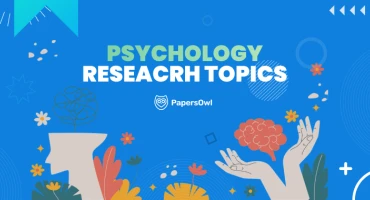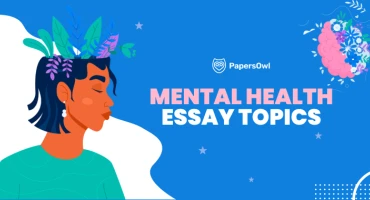Case studies in psychology:
- Provide in-depth analysis of individuals, groups, or events to understand psychological phenomena.
- Offer insights into human behavior, thoughts, and emotions.
- Are used in clinical, social, and developmental psychology to apply psychological theories in real-world scenarios.
In 2025, case studies remain essential for understanding mental health trends, technology’s impact on behavior, and new therapeutic approaches.
If you’re searching for research case study ideas, explore diverse topics to deepen your knowledge. This article covers key case studies, psychology topics, and an example of a made-up case study.
List of Psychology Case Study Ideas
So what are case studies in psychology? They are detailed investigations of individuals, groups, or events used to explore and understand psychological phenomena. They are essential for analyzing various aspects of human behavior, from individual actions to larger social influences. If you’re looking for inspiration, check out psychology research ideas for students to explore a wide range of psychological topics.
Below is a list of 100 potential psychology case study examples with solutions. Each offers a unique opportunity to explore specific psychological concepts or disorders.
🧠 Mental Health & Disorders
- Social media’s impact on adolescent self-esteem: Explores how online interactions influence teenagers’ self-image.
- Long-term effects of childhood bullying: Investigates emotional and psychological consequences of early bullying experiences.
- Obsessive-Compulsive Disorder (OCD) management: Examines treatment approaches for OCD.
- Post-Traumatic Stress Disorder (PTSD) in veterans: Studies PTSD prevalence and treatment in military veterans.
- Anxiety disorders in the workplace: Analyzes how anxiety affects job performance and relationships.
- Depression in the elderly: Explores causes and effects of depression in older adults.
- Addiction and recovery: A case study on the journey through addiction and recovery.
- The psychology of grief and loss: Investigates the processes involved in mourning and adapting to loss.
- Coping mechanisms in chronic illness: Analyzes stress management in long-term health conditions.
- Borderline Personality Disorder (BPD): Comprehensive examination of BPD.
👨👩👧 Developmental & Child Psychology
- Early childhood attachment and adult relationships: Explores how early bonds affect later relationships.
- Parenting styles and child development: Examines how different parenting approaches impact children’s growth.
- Effects of sleep deprivation on cognitive functions: Investigates the impact of inadequate sleep on memory and decision-making.
- Childhood trauma and its long-term effects: Studies the enduring impact of childhood traumatic events.
- The impact of childhood poverty on adult mental health: Examines the psychological effects of growing up in poverty.
- Influence of sibling relationships on emotional development: Investigates how siblings affect emotional growth and social skills.
- The role of play in child development: Explores how different types of play contribute to cognitive and social development.
- Impact of early daycare experiences on attachment: Examines how early daycare affects attachment and social behavior.
- Parent-child communication and emotional intelligence: Studies the link between parenting practices and children’s emotional awareness.
- The effects of screen time on child development: Explores how excessive screen time impacts attention, behavior, and social skills in children.
🧑💻 Social & Cyber Psychology
- Cyberbullying and its psychological consequences: Investigates online bullying’s impact on mental health in youths.
- Social isolation and mental health during a pandemic: Analyzes psychological effects of prolonged isolation.
- The stigma of mental illness in different cultures: Examines cultural attitudes towards mental illness.
- The influence of peer pressure on teenage behavior: Investigates how peer influence affects adolescent decision-making.
- The psychological impact of chronic pain: Investigates the relationship between chronic pain and mental health.
- The effects of music therapy on mood disorders: Examines music therapy in treating depression and bipolar disorder.
- Gender dysphoria: Details experiences of an individual with gender dysphoria.
- Personality development: nature versus nurture: Explores genetic and environmental influences on personality.
- The role of empathy in conflict resolution: Examines empathy’s contribution to resolving interpersonal conflicts.
- The effects of parental alcoholism on children: Investigates the impacts of alcoholic parents on children’s emotional well-being.
🧪 Cognitive & Educational Psychology
- Cognitive Behavioral Therapy (CBT) for anxiety: Analyzes CBT’s effectiveness in treating anxiety.
- The role of genetics in schizophrenia: Explores genetic factors in schizophrenia development.
- The impact of trauma on memory and recall: Investigates how trauma influences memory formation and retrieval.
- The effects of mindfulness meditation on stress reduction: Examines benefits of mindfulness in stress and anxiety reduction.
- Body image perceptions among young adults: Analyzes factors influencing body image and its impact on mental health.
- The psychology behind impulsive decision-making: Explores factors leading to impulsive behaviors.
- Seasonal Affective Disorder (SAD): Detailed exploration of symptoms and treatments of seasonal depression.
- The psychology of happiness and well-being: Analyzes factors contributing to happiness and fulfillment.
- The effect of virtual reality therapy on phobias: Examines virtual reality in treating specific phobias.
- Emotional intelligence and leadership effectiveness: Investigate emotional intelligence’s role in effective leadership.
🧬 Health & Clinical Psychology
- The impact of prenatal exposure to drugs on child development: Analyzes cognitive and behavioral effects of prenatal drug exposure.
- Psychological aspects of chronic fatigue syndrome: Explores psychological symptoms and treatment approaches for chronic fatigue.
- Understanding agoraphobia through a case study: Detailed analysis of causes, symptoms, and treatment of agoraphobia.
- Dyslexia and its effects on learning and self-esteem: Analyzes challenges faced by individuals with dyslexia.
- Psychosocial factors in heart disease: Investigates stress, anxiety, and depression’s role in heart disease.
- Psychological resilience in the face of adversity: Analyzes factors contributing to resilience in challenging circumstances.
- The effects of sleep deprivation on cognitive functions: Investigates the impact of inadequate sleep on memory and decision-making.
- Psychological coping strategies for chronic pain: Explores psychological management of chronic pain.
- The impact of childhood trauma on physical health: Explores the link between early trauma and later physical health conditions, such as heart disease or autoimmune disorders.
- The effects of social support on cancer treatment outcomes: Investigates how emotional and social support systems improve cancer patients’ mental health and treatment success.
🧠 Emerging Topics in Psychology
- AI-induced psychosis: Explores psychological harm induced by chatbots and AI interactions.
- Embodied cognition in education: Investigates the role of physical movement in learning processes.
- Cyberpsychology and online behavior: Studies psychological phenomena associated with internet use.
- Positive psychology interventions in clinical settings: Applies positive psychology techniques to enhance mental health care.
- Replicability crisis in psychological research: Examines issues related to the reproducibility of psychological studies.
- Neuroethics of AI in mental health: Investigates the ethical implications of using AI to diagnose and treat psychological disorders, focusing on privacy and bias concerns.
- The psychology of virtual identity: Examines how individuals perceive and develop their virtual selves in online spaces, and the psychological consequences of virtual identity crises.
- Psychology of remote work and digital burnout: Studies the mental health effects of working remotely, including isolation, burnout, and the blurring of work-life boundaries.
- The rise of neurotechnologies in psychological interventions: Explores the potential and ethical challenges of using neurotechnologies, such as brain-computer interfaces, to treat mental health conditions.
- Psychological effects of deepfake technology: Investigates the mental health consequences of deepfake technology, focusing on its potential to create trust issues and its use in psychological manipulation.
📱 Digital Psychology & Technology
- The impact of social media on mental health: Explores how social media usage affects mental health, especially depression and anxiety.
- Cyberbullying and its psychological consequences: Investigates the long-term psychological effects of cyberbullying on adolescents.
- Virtual reality in therapy: Examines how virtual reality is being used as a tool for treating phobias and PTSD.
- Addiction to video games: Studies the psychological effects of excessive gaming and its impact on social interactions and mental health.
- AI and human emotions: Explores the growing role of artificial intelligence in interpreting and affecting human emotions.
- The psychology behind social media addiction: Analyzes how the need for validation in social media platforms contributes to addiction.
- The effects of online learning on student mental health: Investigates the psychological impact of remote learning, focusing on isolation and stress.
- Digital detox: The psychological benefits of unplugging: Studies the mental health benefits of taking breaks from digital devices.
- The role of gaming in cognitive development: Explores how video games can help improve problem-solving skills and cognitive functions.
- Tech-induced anxiety and stress: Examines how constant connectivity and tech overuse contribute to anxiety disorders.
⚖️ Ethics in Psychology
- The ethics of using AI in mental health care: Explores the ethical concerns regarding the use of AI for diagnosing and treating mental health disorders.
- Informed consent in psychological research: Investigates the ethical importance of informed consent in psychological studies.
- The use of deception in psychological experiments: Examines the ethical implications of using deception in research studies.
- Psychological testing and privacy concerns: Looks at the ethical issues around the use of psychological tests in different sectors, like employment and education.
- Psychological manipulation and ethics: Studies how psychological tactics are used in marketing and politics, and their ethical boundaries.
- The role of psychology in criminal justice: Explores ethical concerns in using psychological assessments in criminal trials and law enforcement.
- Cultural ethics in psychology: Examines how different cultural perspectives affect psychological practice and research.
- The ethics of using psychological therapy in children: Discusses the challenges and ethical concerns in providing therapy for minors.
- Psychological interventions in war zones: Studies the ethics of providing mental health interventions in high-stress conflict zones.
- Balancing patient confidentiality with public safety: Investigates ethical dilemmas that psychologists face when confidentiality conflicts with the need to prevent harm.
🧬 Neuroscience & Brain Psychology
- The role of genetics in mental disorders: Explores how genetics contribute to the development of mental health disorders like schizophrenia and bipolar disorder.
- Neuroplasticity and cognitive rehabilitation: Investigates how the brain’s ability to reorganize itself can aid in recovering from injuries and illnesses.
- The impact of stress on brain structure: Studies how chronic stress can physically alter brain areas involved in memory and emotion regulation.
- The neuroscience behind addiction: Explores how addiction alters brain chemistry and structure, leading to dependency.
- Brain imaging in psychological research: Investigates the use of neuroimaging techniques (like fMRI) to study brain activity during psychological processes.
- The role of neurotransmitters in mood disorders: Examines how imbalances in neurotransmitters contribute to conditions like depression and anxiety.
- The effects of meditation on brain health: Explores how mindfulness practices influence brain regions related to stress and emotion regulation.
- Neurobiological mechanisms of PTSD: Investigates the brain changes associated with PTSD and potential therapeutic interventions.
- The brain’s role in decision-making: Studies how the brain processes information and makes choices, often related to emotional and cognitive biases.
- The effects of aging on cognitive function: Examines how cognitive decline occurs with age and the psychological strategies to maintain brain health.
🌍 Cultural & Cross-Cultural Psychology
- Cultural differences in parenting styles: Explores how parenting varies across cultures and its impact on child development.
- The influence of culture on mental health perceptions: Studies how cultural backgrounds shape the way mental health issues are perceived and treated.
- Acculturation and psychological adjustment: Investigates the psychological challenges faced by individuals in the process of adapting to a new culture.
- Cross-cultural differences in coping mechanisms: Examines how different cultures use various coping strategies for stress and trauma.
- The psychology of migration and displacement: Explores the psychological impacts of migration, including stress, identity struggles, and cultural assimilation.
- Globalization and its psychological effects: Investigates how globalization is reshaping identities, cultures, and mental health worldwide.
- The impact of cultural stigma on mental illness: Studies how cultural views on mental illness affect treatment access and recovery.
- Gender roles and their psychological impact: Examines the psychological consequences of adhering to traditional gender norms.
- Collectivism vs. individualism in emotional expression: Explores how cultural values of collectivism and individualism influence emotional regulation.
- Indigenous psychological practices: Investigates traditional healing practices within indigenous communities and their psychological benefits.
🌱 Positive Psychology & Well-Being
- The role of gratitude in mental health: Explores how practicing gratitude can enhance emotional well-being and reduce stress.
- The psychology of happiness: Investigates what makes people happy and the factors contributing to long-term happiness.
- Mindfulness and its impact on mental health: Examines how mindfulness practices improve mental health and emotional regulation.
- Self-compassion as a tool for resilience: Studies how practicing self-compassion can help individuals bounce back from adversity.
- The power of positive affirmations: Investigates the psychological benefits of using positive affirmations to improve self-esteem.
- Flow state and peak performance: Explores the concept of “flow” and how it contributes to enhanced performance and creativity.
- Social support and its role in well-being: Looks at how having a strong social support system can protect mental health and foster happiness.
- The psychology of kindness: Explores how acts of kindness can improve mental health and promote positive social interactions.
- Building resilience through adversity: Investigates how individuals can build resilience through facing and overcoming challenges.
- The effects of laughter on mental health: Studies the therapeutic benefits of laughter and humor in reducing stress and improving mood.

The Most Famous Case Studies in Psychology
There have been many interesting case studies in the past of psychology. They have helped us understand how people think and act. Here are a few notable case study examples psychology:
- Phineas Gage. This story from the 1800s is one of the first examples of how a brain injury could change a person’s personality. Gage, a railroad worker, suffered a serious brain injury that changed his personality in a big way. This gave scientists important information about how the brain’s frontal lobes affect behavior. His case helped us figure out how certain parts of the brain are connected to personality and controlling behavior.
- Genie. A young girl who was left alone for more than ten years. It taught us a lot about how language develops and when learning a language is best. We learned from Genie’s case how critical it is for kids to talk to others and hear language. Especially when they are young so they can grow up properly.
- Anna O. A patient of Josef Breuer, Anna O. was a foundational case in the development of psychoanalysis. We now understand and treat mental illnesses a lot better thanks to her hysteria symptoms and talking treatment. This case showed how important it is to find out what a patient is thinking and feeling as a way to help them heal.
- Little Hans. This case, analyzed by Sigmund Freud, centered on a five-year-old boy’s fear of horses. It played a crucial role in the development of Freud’s theories of psychosexual development and the Oedipus complex. The case was a classic case study example psychology of Freud’s work on how things that happen in childhood affect how people act and think as adults.
- David Reimer. Born as a biological male, Reimer was raised as a female after a botched circumcision. His case challenged the notion of gender identity being solely a product of socialization and highlighted the complexity of gender identity development.
- The Stanford Prison Experiment. This study on the psychological effects of perceived power, conducted by Philip Zimbardo, showcased how normal people can act inhumanely in certain social roles, shedding light on the dynamics of power and authority. This experiment is a classic example of how situational forces can influence human behavior.
- Jane Elliott’s Blue Eyes/Brown Eyes Exercise. This activity was a strong way to learn about prejudice and discrimination. It showed how easy it is for people to form biases based on small differences. It gave me new ideas about prejudice and how important education is in fighting discriminatory views.
- The Case of Kitty Genovese: Many witnesses to the murder of Kitty Genovese said they did nothing. It led to studies on the bystander effect and social duty. Much study has been done on why people help or don’t help others upset because of this case.
- Victor of Aveyron (The Wild Boy of Aveyron): Victor, often referred to as the Wild Boy of Aveyron, was a feral child found in France in the late 18th century. His case is one of the earliest documented instances of a child living in the wild. The case taught us a lot about what happens when you don’t have friends or family.
These psychology case study examples for students show how broad and deep psychological research is and how it changes how we think about and understand people. As a unique contribution to the field of psychology, each case has shown us new things about how people behave, think, and interact with each other. They stress how important the case study method in psychology is in research.
By exploring key types of case study research, we can better understand the different approaches and techniques used to investigate psychological phenomena. Because it gives us a lot of interesting information that can help us learn more about psychology, people are still studying these cases, which indicates that they have had a long-lasting impact on the field.
Example of a Hypothetical Case Study in Psychology
To further illustrate how a case study in psychology can be conducted, let’s consider a hypothetical example of a case study in psychology:
Case Study: “Emma’s Journey Through Anxiety”
Emma, a 30-year-old marketing executive, has been experiencing severe anxiety for the past six months. Her symptoms include persistent worry, restlessness, difficulty concentrating, and insomnia. These symptoms have significantly impacted her work performance and personal life.
Emma’s family history, schooling, and personal relationships are some things the case study talks about. It looks at things that might make her anxious, like stress at work, recent changes in her life, or traumatic events. The study also looks at her ways of dealing with people who help her.
Cognitive-behavioral treatment (CBT), medication, or a mix of the two are all possible ways to treat the problem. There are details about Emma’s success and problems in therapy in the case study, which shows how well different types of therapy work.
How anxiety disorders affect daily life, and how resolve and support networks can help people get better. These are all things that Emma’s story helps us understand better.
The study investigates how Emma’s anxiety affects her daily interactions and decision-making processes. It looks at how her body reacts to worry, including any psychosomatic symptoms, and how these symptoms make her mental illness worse. The case study also looks at how her culture and society shape Emma’s anxiety. For example, the shame she feels makes her less likely to get help to keep it up.
Emma’s responses to various therapeutic techniques are carefully documented throughout the treatment. It looked at how well relaxation methods, exposure therapy, and cognitive restructuring helped her deal with her symptoms. The study also looks at the role of medicine, any side effects she had, and how her body reacted to the drugs.
At the end of the case study, the outcomes are looked at, such as how Emma’s symptoms, ways of coping, and general quality of life changed. People talk about what they learned from Emma’s case. Especially about the importance of having a clear treatment plan and the different kinds of therapy. It is also about what this means for future psychology research and practice. With a focus on how important it is to treat anxiety conditions in a way that takes the whole person into account.
The Bottom Line
Case studies are an essential tool for understanding human behavior, mental health, and the challenges people face. In 2025-2026, they’re more relevant than ever—helping us understand mental health trends, the impact of technology, and new ways to treat psychological issues.




